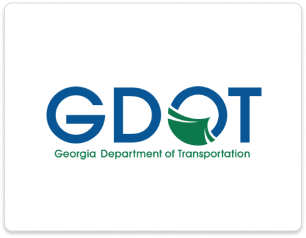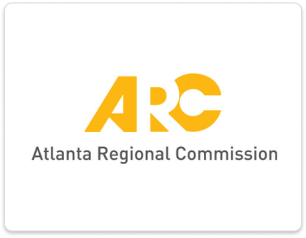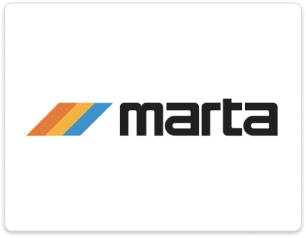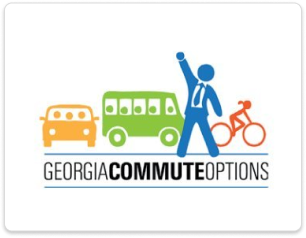Transportation Partners
The State Road and Tollway Authority (SRTA) is a state-level, independent Authority created by the Georgia General Assembly to operate tolled transportation facilities within Georgia and act as the transportation financing arm for the State. SRTA manages the collection of tolls on Georgia’s Express Lanes System through the use of Peach Pass, the state’s all-electronic tolling technology.
Georgia Department of Transportation
The Georgia Department of Transportation (GDOT) plans, constructs, maintains and improves the state’s road and bridges; provides planning and financial support for other modes of transportation such as mass transit and airports; provides airport and air safety planning; and provides air travel to state departments. The Department is responsible for waterways, including the intercoastal waterway and the Savannah and Brunswick ports. Additionally, the department is responsible for rail transit.
Atlanta Regional Commission
The Atlanta Regional Commission (ARC) is the regional planning and intergovernmental coordination agency for the 10-county metro Atlanta area including Cherokee, Clayton, Cobb, DeKalb, Douglas, Fayette, Fulton, Gwinnett, Henry and Rockdale counties, as well as the City of Atlanta. The Atlanta Regional Commission is designated as a Metropolitan Area Planning and Development Commission as well as a Regional Commission under the laws of the State of Georgia.
Metropolitan Atlanta Rapid Transit Authority (MARTA)
The ninth-largest transit service in the U.S., MARTA carries more than 470,000 riders to their destinations each weekday in Fulton and DeKalb counties. MARTA service connects riders with major business districts, Hartsfield-Jackson Atlanta International Airport, Turner Field, Centennial Olympic Park, the Georgia World Congress Center, the Georgia Dome and more.
Georgia Commute Options
Georgia Commute Options, a program of the Georgia DOT, provides a suite of cost-effective transportation demand management programs and services to Georgia employers, commuters and schools. Georgia Commute Options providers offer assistance to more than 1,600 employers to design and implement commute options programs that make business sense; protect public health; offer targeted incentives to commuters and employers; provide Smog Alert notifications; and work with elementary, middle and high schools to protect children from harmful pollution and empower children to take a positive role in reducing traffic and cleaning the air.




